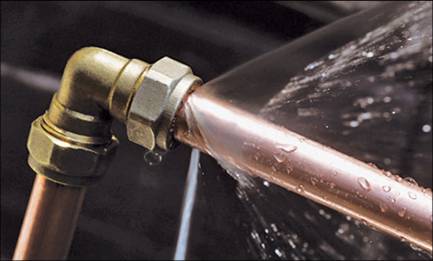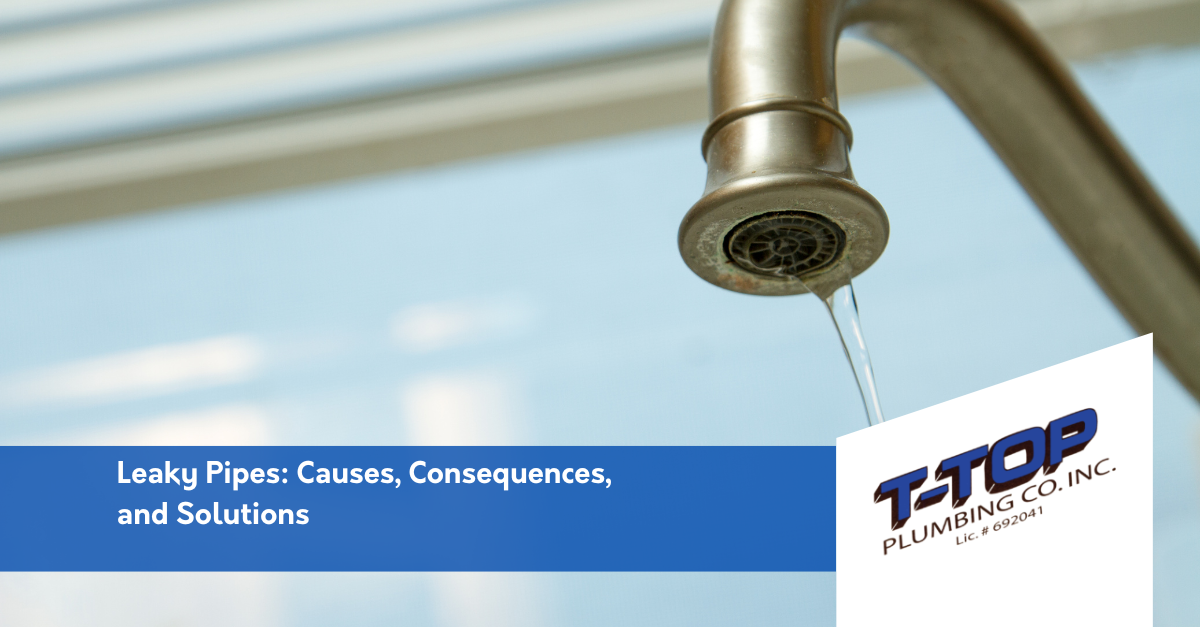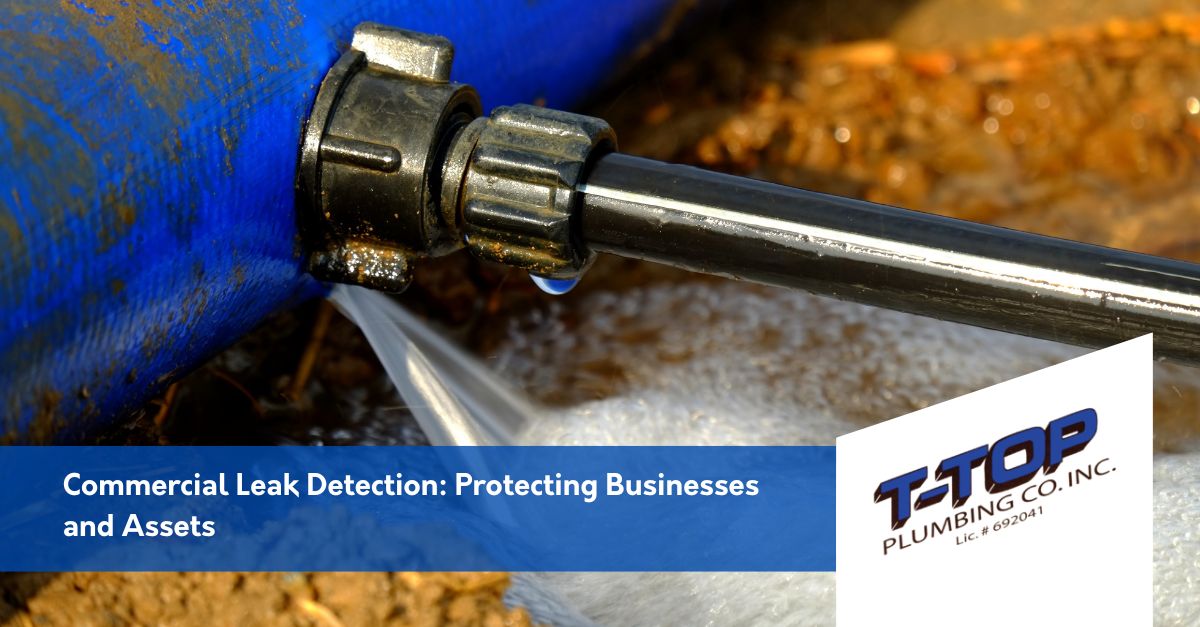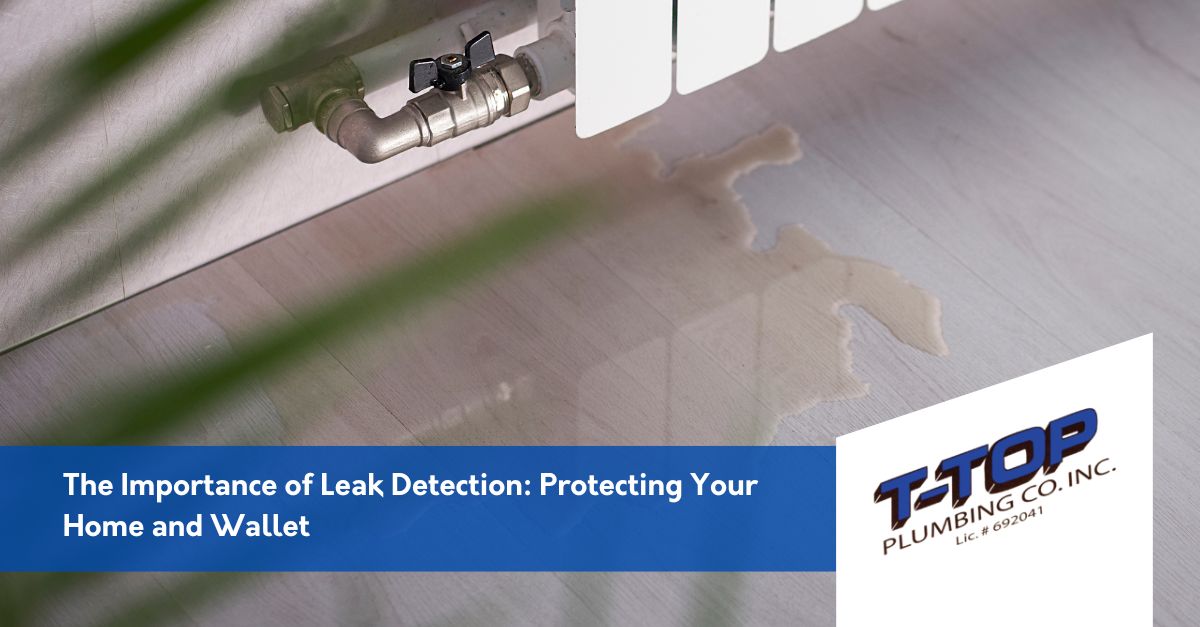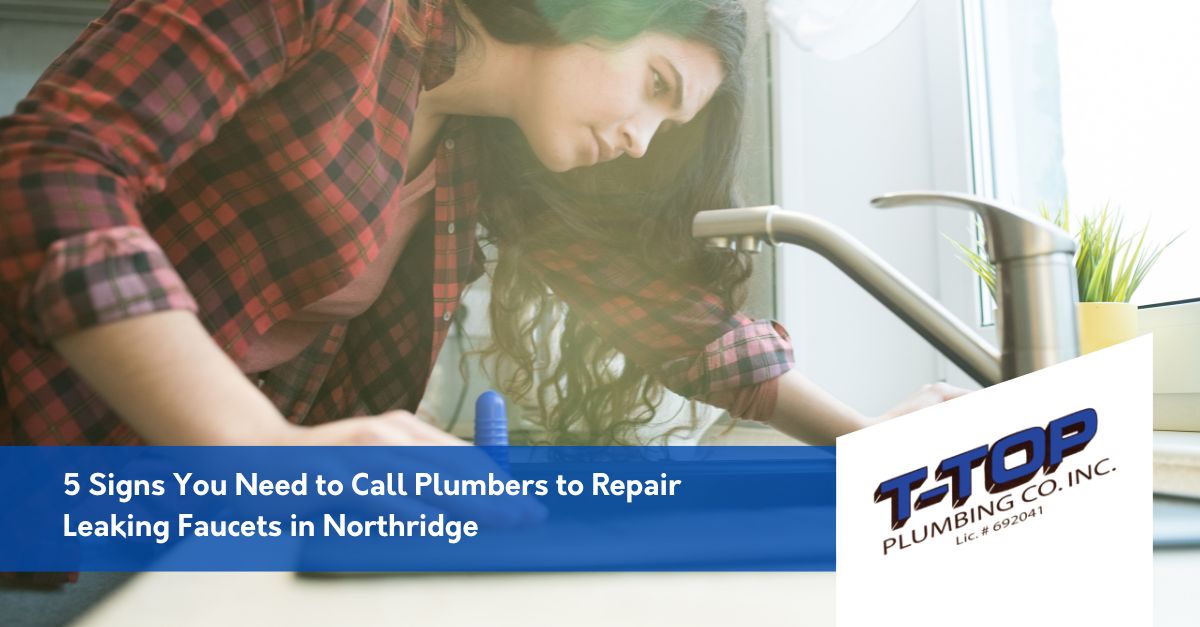No matter what precautions you take, a leaky pipe in your home is inevitable. Simple wear and tear over time is typically the culprit. Sometimes improper installation and defective materials might also be to blame. That said, there are a still a few measures one can take to reduce the likelihood of a leaky pipe. T-Top Plumbing – commercial and residential plumbers in the Los Angeles and Ventura area – offer a few tips to help prevent leaks from occurring and keep your pipes clean and healthy for the long haul.
Check the Condition of Your Water
Most of Southern California has hard water. Water is considered “hard” whenever it contains relatively high levels of calcium and magnesium. If you live in a hard water area, know that the health of your pipes is greatly compromised. The magnesium and calcium ultimately build-ups in your plumbing system. This puts added pressure on your pipes; eventually decreasing their outflow. All while eating away at your joints and fittings as well.
This is why it’s imperative that residential and commercial property owners test the condition of their water. This can actually be done with the naked eye. One sign you have hard water is a staining or white buildup wherever water generally accumulates. For instance, you may see this white buildup in the grout that surrounds your kitchen sink or showerhead.
If you suspect you have hard water, you’ll need to soften it. This is your best bet if you want to save your pipes, joints, and valves from this tension they won’t be able to sustain as time goes on. Water softener can be purchased at your local hardware store. Just make sure you’re choosing the right kind for your situation and you understand how to install it. If the DIY approach isn’t your thing, a local plumber can do all of this for you.
Lower Your Water Pressure
Nobody likes to lower their water pressure. That morning shower doesn’t feel quite as good. Rinsing the dishes takes longer. However, keeping your water pressure up is a luxury. One that inevitably stresses your pipes, joints, valves, and faucets. Here’s how to check to make sure your water pressure isn’t too high:
- A water pressure gauge can be purchased at your local hardware store and then hooked up to any threaded faucet – for instance, outside your home or in the laundry room.
- Once this water pressure gauge is screwed onto the faucet, turn on the water and check your pressure reading. A normal reading is between 40 and 80 lbs per square inch.
- If the reading is too high, turn down your water pressure. Even if it’s not too high, you still have the option of lowering it to relieve tension that will ultimately lead to a leak. This can be done by taking a wrench to the top of the pressure regulator meter (most commonly located above the water meter) and turning the nut clockwise.
NEED A VENTURA OR LOS ANGELES AREA PLUMBER TO CHECK WATER PRESSURE AND HARDNESS?
High water pressure is a nice thing to have, but over time it’s simply not good for your plumbing system. Leaks are never a pleasurable experience. If you’re not sure about your water’s hardness or pressure, contact our Los Angeles/Ventura area plumbers today by visiting https://www.ttopplumbing.net/contact or by calling (805) 527-8867.

